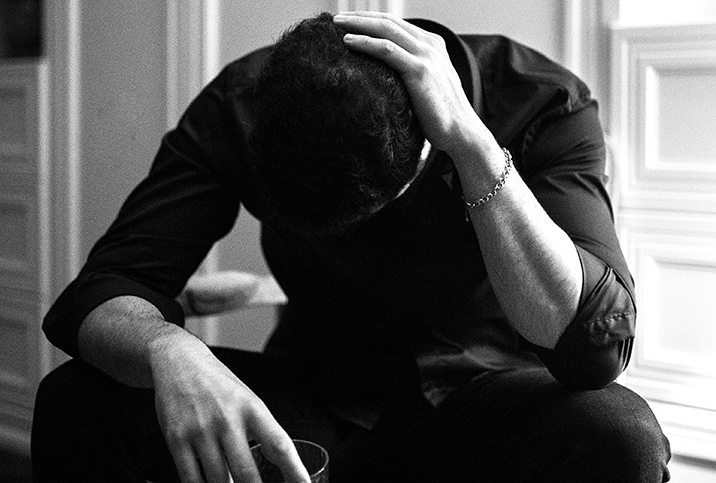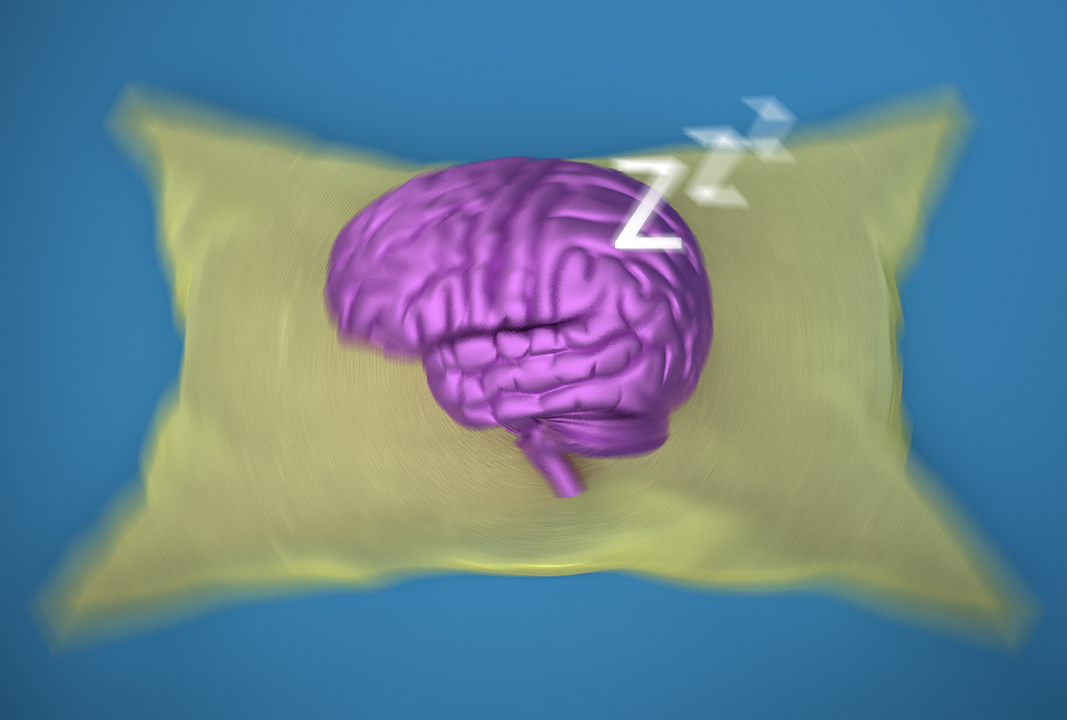We Have Questions: Ties Between PTSD and ED

Post-traumatic stress disorder (PTSD) is a chronic psychiatric disorder triggered by experiencing or witnessing a traumatic event. Many people with PTSD suffer nightmares or flashbacks, reliving the trauma through distressing memories.
Unfortunately, for some men, these intrusive thoughts can contribute to another condition known to cause distress: erectile dysfunction (ED).
Research indicates there's an association between PTSD and ED, early ejaculation and other male sexual difficulties. According to a 2013 study, PTSD increased the risk of sexual dysfunction in men by more than three times. ED and early ejaculation were the most commonly reported types of sexual dysfunction in the study.
A study from 2002 found 85 percent of combat veterans who underwent treatment for PTSD reported symptoms of ED, compared with 22 percent of the control group.
A 2021 systematic review of medical literature stated the nuances of the relationship between PTSD and sexual difficulties "remain elusive" and more research is needed to increase confidence in the findings.
To gain a better understanding of PTSD and its correlation with ED, we spoke with Louis Pagano, Ph.D., a practicing psychologist based in St. Cloud, Minnesota. Since 2014, Pagano has treated PTSD patients, primarily active-duty military members and veterans. His patients are not limited to those suffering from combat-related PTSD, however, as he's also helped people with PTSD from sexual trauma, abuse, violence and natural disasters that may or may not have been associated with their military experiences.
What are some of the most common symptoms of PTSD?
Pagano: Common symptoms include:
- Reexperiencing the trauma through intrusive and upsetting recollections of the event, flashbacks and nightmares.
- Emotional numbness and avoidance of places, people and activities that are reminders of the trauma.
- Increased arousal, such as trouble sleeping and concentrating, feeling jumpy, and being easily annoyed and angered.
What do we know about the link between PTSD and erectile dysfunction?
In males diagnosed with PTSD, erectile problems can be common. PTSD has the potential to negatively impact sexual functioning across multiple areas: desire, arousal, orgasm and fulfillment. In addition to ED, premature ejaculation is another problem people with PTSD struggle with.
[One] of the hypothesized reasons as to why PTSD impacts sexual activity is PTSD and sexual activity both come with physiological changes, and the body can only do so much at once.
In those with PTSD, sometimes a perceived threat or something reminiscent of an earlier trauma is responded to with a "flight or fight" reaction. They're angry, worried or afraid. When we're in this state, the last thing our body is programmed to do is to obtain and maintain an erection. And the last thing our mind will tell us to focus on in a heightened state of PTSD-driven arousal is sexual desire and gratification.
Another important facet of PTSD for some is changed beliefs about themselves and others. For example, "I can't trust anyone" or "I can't protect myself," and negative alterations to mood, such as sadness, as well as hypervigilance where you're always on the lookout for threats.
In order to have enjoyable sex, you need to not only perceive some relative degree of safety in the environment, you need to feel safe with the person you're wanting to have sex with. You have to have the ability to open up and relax to some extent in order to experience a desire to initiate sex and enjoy the pleasure it offers.
Common medications to treat PTSD, like selective serotonin reuptake inhibitors (SSRIs), for example, are sometimes associated with sexual side effects even though they may be helpful for PTSD-specific symptoms. This further complicates the association of PTSD with ED.
Discuss the forms of therapy you find to be particularly effective in treating PTSD and ED.
There is limited research exploring the impact of treating PTSD and examining outcomes on things specific to sexual health like ED. However, there are a few studies that indicate psychotherapy for PTSD, like cognitive processing therapy (CPT) and prolonged exposure therapy, can improve sexual health and functioning overall. The more improvement to PTSD, the higher the likelihood sexual functioning may improve.
Have you found that treatment for PTSD alone can solve the ED issue in some men?
Yes, for some it can, assuming there are no significant medical problems driving the ED issues. Make sure you touch base with your primary care provider first to rule this out. Think about it this way: If something traumatic happened and there were no ED problems before and the overall physical health and other habits have stayed relatively stable, PTSD may be the most likely culprit.
A lot of men with PTSD who are generally physically healthy can obtain and maintain an erection while masturbating but struggle when it's with another person. Placebo has also been associated with improvement of ED, especially among men with ED-related PTSD. I think this goes to show you ED is as much of a mental game as it is a physical game, so take care of your mental health.
For men who have been recently diagnosed with PTSD and ED, what do you generally tell them they can expect from the treatment process?
If treating PTSD in the hopes that sexual health and functioning improve, you should try to seek out treatment that has the best evidence from clinical research for its support. Many high-quality clinical practice guidelines recommend the following treatments as the first-line treatment options for PTSD: prolonged exposure and cognitive processing therapy. While there are other forms of treatment that may also be beneficial, these two treatments come with the most robust evidence and strongest recommendations.
Psychotherapy is often recommended over medication as the first approach to treatment. Prolonged exposure is a type of cognitive behavioral therapy (CBT) that helps individuals approach trauma-related thoughts, feelings, memories and situations in a safe, gradual way. Exposure is an effective intervention strategy commonly used in CBT to help individuals confront fears; it has been shown to be helpful for treating a wide array of problems.
PTSD is, in part, maintained by wanting to avoid anything that reminds them of the trauma they experienced because it reinforces the fear in the long run. By confronting what has been avoided, individuals are able to decrease PTSD symptoms by learning that the trauma-related memories and situations are not unsafe and do not need to be avoided. By allowing yourself to experience the strong emotions associated with trauma-related memories and situations, you'll learn that you won't "fall apart" and that these emotions can go away naturally on their own without avoidance.
Cognitive processing therapy is a specific type of CBT that has been helpful in improving symptoms of PTSD related to a variety of traumatic events, including abuse, combat, rape and natural disasters. CPT is often delivered over 12 appointments, either individually or in groups, and helps folks to learn how to challenge and amend the unhelpful beliefs about yourself, others and the world following a traumatic event. By doing so, individuals can generate a new conceptualization of the traumatic event so that it diminishes its negative impact on quality of life and functioning. Both treatments help with PTSD, they just reach the same end goal through different methods.
Any other guidance or tips you'd recommend for men struggling with PTSD and ED?
PTSD is not often something that gets better on its own over time. Like with many mental health conditions, targeted behavioral and cognitive changes are often needed to help people get better. If you think you may have PTSD or any other condition that may be impacting your health and quality of life, try to schedule an appointment with a medical or mental health provider to get more information or possibly an assessment.
Know that PTSD and many other mental health conditions that may impact sexual health and functioning are often very treatable.


















